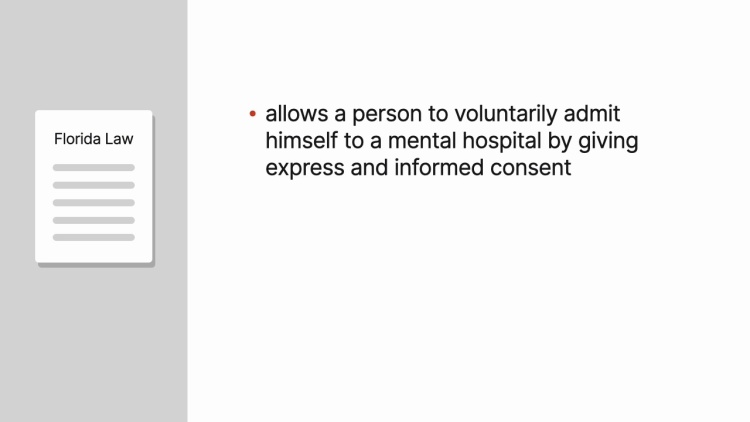Zinermon v. Burch
United States Supreme Court
494 U.S. 113 (1990)
- Written by Robert Schefter, JD
Facts
On December 7, 1981, Darrell Burch (plaintiff) was admitted to a private mental health facility in Florida after being found wandering along a highway in a disoriented state. He remained at the facility for three days, where he was diagnosed as paranoid schizophrenic and given psychotropic medication, before being taken to the Florida State Hospital (FSH). At FSH, Burch signed several forms requesting voluntary admission and consenting to treatment. Staff notes indicated that Burch was extremely psychotic, paranoid, and hallucinating upon admission. FSH admission policies dictate that voluntary patient admissions could be made only upon informed consent, while more extensive admission procedures were prescribed for those persons incapable of giving informed consent. No hearing was held regarding Burch’s hospitalization or treatment during his five months at FSH. Burch brought a § 1983 action in the United States District Court for the Northern District of Florida against staff physician Dr. Zinermon and 10 other FSH staff members (defendants), alleging deprivation of liberty without due process for admitting him as a voluntary patient while he was incompetent. The district court granted a defense motion to dismiss, the court of appeals reversed and remanded, and the United States Supreme Court granted certiorari.
Rule of Law
Issue
Holding and Reasoning (Blackmun, J.)
Dissent (O’Connor, J.)
What to do next…
Here's why 905,000 law students have relied on our case briefs:
- Written by law professors and practitioners, not other law students. 47,100 briefs, keyed to 995 casebooks. Top-notch customer support.
- The right amount of information, includes the facts, issues, rule of law, holding and reasoning, and any concurrences and dissents.
- Access in your classes, works on your mobile and tablet. Massive library of related video lessons and high quality multiple-choice questions.
- Easy to use, uniform format for every case brief. Written in plain English, not in legalese. Our briefs summarize and simplify; they don’t just repeat the court’s language.





